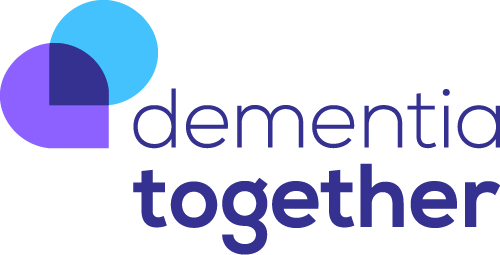12 May Safety and well-being. It’s tricky
With the onset of Covid-19, everyone in healthcare hopefully now knows well that masks are needed as we interact with our elders. We’ve been asked our thoughts on this. Our answer is: We absolutely must comply with national scientific, state and local regulations to protect those most vulnerable. We understand how tricky that makes it to easily communicate with those who already may have a difficult time understanding verbal communication.
For our homecare professional colleagues, when possible, if you can see your client through a window/glass door (while you are outside in public space away from your client), you might consider showing your face first, and with a few words, a smile, and animated facial expressions, explain, “I have to put on this mask…” Then put the mask on in front of your client and enter in the door. (Obviously, don’t do this inside a building or anywhere else where masks have to be worn at all times to comply with best practice guidelines.)
If your client living with dementia thinks “this whole thing is stupid,” like with any other situation, choose to be kind enough to join him in it. As much as we’d like to use logic to explain the virus and our need to wear PPE, we know logic is often not helpful in easing the mind or mood of our client living with dementia. Being kind looks like joining him/agreeing with him in his frustration: “This whole thing IS stupid. I’m so sorry we have to do this, but I’m glad we can spend time together while we endure this (together)…” After two weeks of Bob repeatedly asking why, and getting frustrated with his caregivers and wife for having limited ability to go out and having to wear a mask when he did go out, the staff and Bob’s wife finally simply agreed with Bob and were amazed at his change in mood. “He didn’t want my explanation. He just wanted someone in on this hassle with him.” Bob just wanted someone to join him. Sometimes being humble enough to join our clients vs. trying to fix the situation actually fixes the situation. The SPECAL Method calls this, establishing a “We-relationship.” We maintain our “we-relationships” with eye contact, our body language, and then our words. Especially while we need to wear masks, this eye contact is crucial.
Other tips for us to consider:
Smile–even though we’re smiling under masks. It shows in our eyes, and it often makes us feel better too.
Approach from the front as always, but especially now that our faces are covered
Use more gestures. Again, especially when verbal skills decline, we all could use more gestures to communicate, but even moreso now when comprehension of our words is likely to be increasingly challenging due to our masks.
Use more music. As verbal communication is more difficult, comfort and joy can still be shared through familiar music…joy not just for our clients, but mutual joy for all.
Take our time to establish a “we-relationship” using eye contact and fewer words. Maybe this, above all else, is how we can promote well-being during a time when social connection is increasingly difficult. (Did we mention this already? Perhaps because in dementia care, we need to learn to love repetition!)
We are collaborating with leaders locally and nationally as we all examine what is science-based (like frequent, thorough hand washing, physical distancing, contact tracing, wearing masks, monitoring of physical symptoms, and isolation when necessary) vs. fear-based (limiting entertainment and outdoor activity in low-risk environments even when all of the above measures are taken.) This is a scary time. It’s tricky finding the balance of protection of life and maintenance of living. Bigger ethical issues are awaiting our consideration. May we always assume that our leaders, at this difficult time are tackling risk management issues with the best intentions, wisdom, compassion, and concern for life, safety, and well-being.
Oh, and one more tip….Try, like the rest of us, to get clear masks that allow our clients to better see our faces. If we find any secrets to obtain an adequate supply, we will be sure to let you know! Until then, we join you in keeping our regular masks on and doing everything else we can do to transform physical distancing into social connection…because our elders at risk deserve nothing less.

